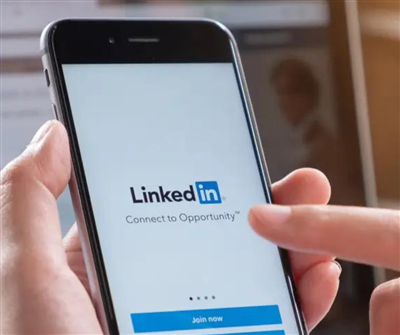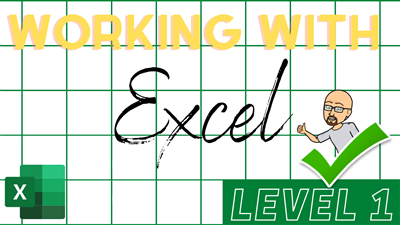
Sales Skills Course: Mastering the Art of Selling for Success
Sales Skills Course: Mastering the Art of Selling for Success
Introduction
Sales are the lifeblood of any business, and having strong sales skills is essential for anyone looking to thrive in today’s competitive market. No matter if you're promoting products, services, or ideas, honing your sales skills is key to achieving both personal and professional success. In this course, we'll explore the core skills that every salesperson needs, from understanding customer psychology to closing deals confidently. By the end of this guide, you’ll be well-equipped to boost your sales performance and exceed your targets.
The Foundations of Sales
At its core, sales is about solving problems and offering solutions that meet customer needs. But understanding the sales process is critical to mastering this art. The typical sales process includes prospecting, building relationships, presenting your offer, handling objections, and closing the deal. Knowing how to navigate each step efficiently will set you apart as a skilled salesperson.
There’s also a distinction between B2B (Business-to-Business) and B2C (Business-to-Consumer) sales. B2B sales often involve longer sales cycles and more complex negotiations, while B2C is typically more transactional. Both require a deep understanding of the buyer, but the strategies may differ.
Successful salespeople often share key traits: they are persistent, empathetic, goal-oriented, and resilient. With the right mindset, anyone can develop these characteristics and thrive in sales.
Understanding Customer Needs
The best salespeople know that sales are not about pushing products but about understanding the customer’s needs. This begins with active listening—a crucial skill that allows you to hear not only what the customer is saying but also what they’re not saying.
Asking the right questions will help you uncover the customer's pain points—the challenges or problems that your product or service can solve. Understanding these pain points allows you to position your offer as the perfect solution. Additionally, identifying different customer personas can help you tailor your approach based on their preferences and behavior.
Building Rapport and Trust
People buy from those they trust, which makes building rapport an essential part of the sales process. The key to building trust is authenticity—customers can sense when you're genuinely interested in helping them, rather than just making a sale.
Some techniques for quickly building rapport include finding common ground, showing empathy, and demonstrating credibility. Whether it’s a shared interest or a professional connection, rapport sets the foundation for a successful sales interaction. Always remember to maintain authenticity and avoid using generic scripts or tactics that can seem disingenuous.
The Psychology of Selling
Understanding the psychology of buyers can give you a significant edge in sales. For instance, emotions often drive purchasing decisions, even in B2B scenarios where logic plays a larger role. By tapping into the emotional motivators—such as fear of missing out (FOMO), the desire for success, or security—you can influence the customer’s decision-making process.
Another psychological principle that impacts sales is social proof. People tend to follow the crowd, so showcasing testimonials, case studies, or customer success stories can build trust and validate your offer.
Effective Communication Skills
Clear and persuasive communication is the heart of sales. You need to be able to convey the benefits of your product or service in a way that resonates with the customer. Non-verbal communication is equally important; your body language, eye contact, and tone of voice all contribute to how your message is received.
Moreover, adapting your communication style based on the customer’s personality can improve your effectiveness. For instance, some people prefer detailed explanations, while others want concise, to-the-point information.
Handling Objections
Every salesperson encounters objections, but the best view them as opportunities to further the conversation. Common objections like “It’s too expensive” or “I need more time” can be tackled with preparation and patience. The key is to understand the underlying reason for the objection and address it directly.
Some techniques for overcoming objections include:
- Acknowledging the concern: Validate the customer’s feelings before responding.
- Providing evidence: Offer data, testimonials, or case studies that support your claims.
- Offering alternatives: Propose a solution that mitigates their concern, like flexible payment options or added value.
The Art of Negotiation
Negotiation is a skill that allows both parties to leave the table feeling like they’ve won. Effective negotiation requires finding a balance between giving and getting. To do this, focus on creating win-win solutions that align with both the customer’s needs and your goals.
Successful negotiators also know the power of silence—sometimes, saying less can give you the upper hand in a deal. Be patient and let the customer voice their needs first.
Presenting Your Product or Service
When it’s time to present your product, you need more than just a list of features. Customers are looking for ways your product can address their issues or enhance their lives.This is where value-based selling comes in. Instead of focusing on the features, highlight the benefits and outcomes that the customer will experience.
Storytelling is another powerful tool in presentations. Share success stories, use relatable analogies, or explain how other customers have benefited from your product.
Closing the Sale
Closing the sale is arguably the most important part of the sales process, yet it’s an area where many salespeople hesitate. Recognizing buying signals—like positive feedback or detailed questions about the product—can indicate that the customer is ready to commit.
Closing techniques include the assumptive close, where you assume the sale and proceed with next steps, or the alternative close, where you offer the customer a choice between two options, both leading to a sale.
Using Technology in Sales
In today’s digital world, salespeople have a variety of tools at their disposal to streamline and improve their process. CRM (Customer Relationship Management) systems help you organize leads, track interactions, and automate follow-ups. Leveraging social media for prospecting and using email automation for nurturing leads can also improve efficiency and success rates.
















